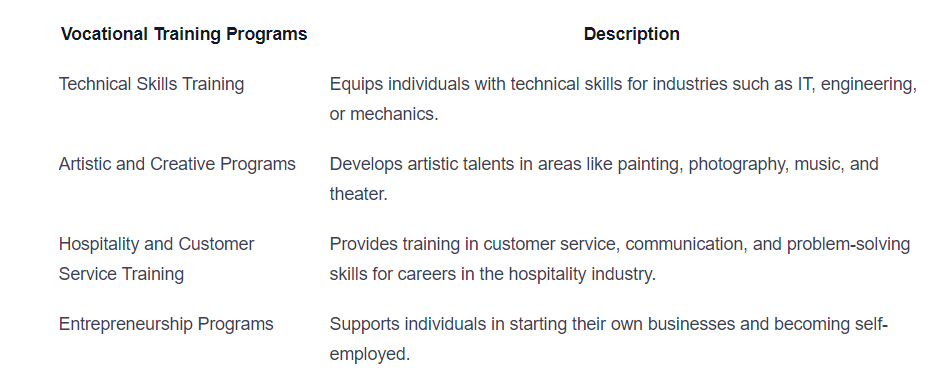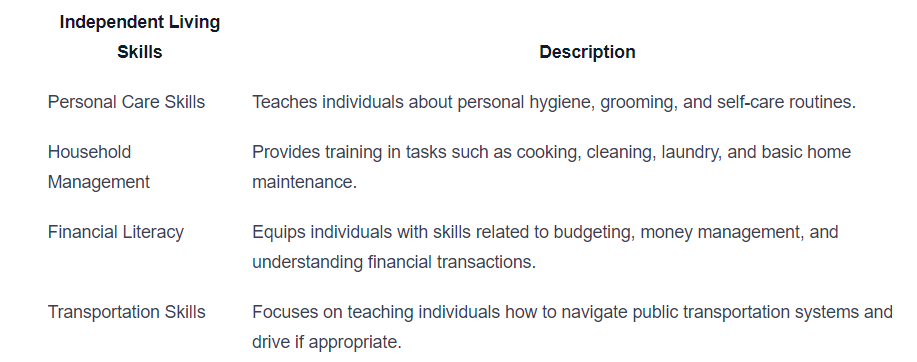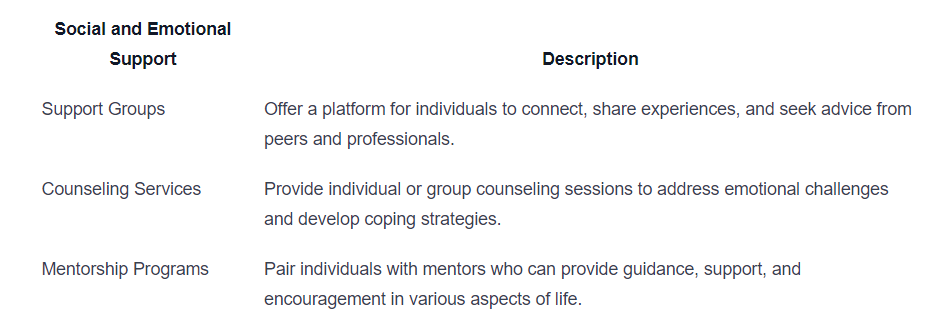Should I Worry About My Autistic Child Becoming an Adult?
Supporting autistic children on their path to adulthood. Address concerns and empower them with the right support systems.

Nurturing Autistic Children
Understanding and nurturing autistic children is essential to support their growth and development. Autism Spectrum Disorder (ASD) is a neurodevelopmental condition that affects individuals in various ways. By gaining a deeper understanding of ASD and the challenges faced by autistic children, we can provide the necessary support and create a nurturing environment for their well-being.
Understanding Autism Spectrum Disorder (ASD)
Autism Spectrum Disorder (ASD) is a complex developmental condition that typically appears in early childhood and affects an individual's social interaction, communication skills, and behavior. It is characterized by a wide range of symptoms and varying degrees of impairment.

It's important to note that each individual with ASD is unique, and the severity and combination of symptoms can vary greatly. Early diagnosis and intervention play a crucial role in maximizing the potential of autistic children and providing them with the support they need.
Challenges Faced by Autistic Children
Autistic children may encounter various challenges that can impact their daily lives and development. These challenges can include:
- Communication difficulties: Many autistic children struggle with verbal and nonverbal communication. They may have difficulty understanding and expressing their thoughts, emotions, and needs. Augmentative and alternative communication (AAC) methods, such as sign language or visual aids, can be beneficial in facilitating communication.
- Sensory sensitivities: Sensory sensitivities are common among autistic children. They may be hypersensitive or hyposensitive to sensory stimuli such as noise, light, touch, or textures. Sensory overload or discomfort can lead to meltdowns or withdrawal. Creating a sensory-friendly environment and providing sensory accommodations can help alleviate these challenges.
- Social interaction hurdles: Autistic children often face challenges in social interactions and developing social skills. They may struggle with understanding social cues, making and maintaining friendships, and participating in group activities. Social skills training, therapy, and opportunities for social interaction can support their social development.
- Executive functioning difficulties: Executive functioning refers to cognitive processes such as planning, organizing, and self-regulation. Many autistic children struggle with these skills, which can affect their ability to manage daily tasks, transitions, and time management. Visual schedules, task breakdowns, and explicit instructions can support their executive functioning skills.
By recognizing and addressing these challenges, parents, caregivers, and educators can provide a nurturing environment that promotes the well-being and development of autistic children. Through early intervention and personalized support, autistic children can thrive and reach their full potential.
Transitioning to Adulthood
As autistic children grow into adulthood, they face unique needs and challenges during the transition period. Understanding these aspects is crucial for parents and caregivers to provide the necessary support and guidance. In this section, we will explore the unique needs of autistic individuals and the challenges they may encounter during this transitional phase.
Unique Needs of Autistic Individuals
Autistic individuals have diverse needs that require careful attention as they transition into adulthood. Some of these needs include:
- Social Skills Development: Autistic individuals may require additional support in developing social skills to navigate various social interactions and relationships effectively.
- Communication Skills Enhancement: Communication difficulties are common among autistic individuals. Providing resources and interventions to enhance their communication abilities can greatly contribute to their overall well-being.
- Specialized Education: Tailoring education to meet the unique learning styles and needs of autistic individuals is essential. Specialized programs that focus on promoting independence and life skills development can be beneficial.
- Sensory Sensitivities: Many autistic individuals have heightened sensitivities to sensory stimuli. Understanding and managing these sensitivities can help create environments that are more comfortable and accommodating for them.
Challenges During the Transition Period
The transition from adolescence to adulthood can present various challenges for autistic individuals. Some of these challenges include:
- Navigating Employment Opportunities: Finding suitable employment can be challenging for autistic individuals due to potential barriers related to social interactions, communication, and sensory sensitivities. Providing vocational training and support can aid in their successful integration into the workforce.
- Independent Living Skills: Acquiring essential life skills for independent living, such as managing finances, cooking, and transportation, can be more challenging for autistic individuals. Teaching and reinforcing these skills during the transition period can empower them to lead more independent lives.
- Accessing Support Services: As autistic individuals transition into adulthood, they may face a reduction in access to support services they received during their childhood. Navigating the adult support system and ensuring continued access to necessary services can be a significant challenge.
Understanding these unique needs and challenges can help parents, caregivers, and the community provide the necessary support and resources for autistic individuals during their transition to adulthood. By addressing these needs and challenges proactively, we can empower autistic individuals to lead fulfilling and independent lives.
Support Systems for Autistic Children
Supporting autistic children is crucial to their overall development and successful transition into adulthood. In this section, we will explore the importance of early intervention, the role of parents and caregivers, and the support available through schools and the community.
Importance of Early Intervention
Early intervention plays a vital role in supporting the development of autistic children. Identifying and addressing challenges at an early age can significantly improve outcomes and enhance their overall well-being. Early intervention programs focus on providing specialized therapies and interventions tailored to the unique needs of each child.
Research has shown that early intervention can lead to improvements in communication skills, social interactions, behavior management, and cognitive abilities. By intervening early, parents and caregivers can help children build a solid foundation for their future growth and development.
Role of Parents and Caregivers
Parents and caregivers play a crucial role in the support system of autistic children. They are often the primary advocates and facilitators of their child's progress. Here are some ways parents and caregivers can provide support:
- Seek information and educate themselves about autism spectrum disorder (ASD) to better understand their child's needs.
- Establish a structured and predictable environment to help their child feel safe and secure.
- Encourage and engage in meaningful social interactions and communication with their child.
- Collaborate with professionals and therapists to create and implement personalized interventions and strategies.
- Foster a positive and nurturing relationship with their child, promoting self-esteem and emotional well-being.
By actively participating in their child's journey, parents and caregivers can provide the necessary support and guidance needed for their child's growth and development.
School and Community Support
Schools and the community play a significant role in providing support to autistic children. Educational institutions that offer inclusive programs and individualized education plans (IEPs) can help meet the unique educational needs of autistic students. Some key areas of support include:
- Specialized teaching strategies and accommodations tailored to the child's specific learning style.
- Access to therapists, speech-language pathologists, and occupational therapists who can provide additional support within the school setting.
- Peer support programs and social skills training to facilitate positive interactions and friendships.
- Transition planning and support to help autistic students successfully navigate the shift from school to adulthood.
Community support services, such as support groups, recreational programs, and vocational training opportunities, can also contribute to the overall well-being and inclusion of autistic children. These resources provide opportunities for social engagement, skill development, and community integration.
By leveraging the support systems available through schools and the community, autistic children can receive the comprehensive support they need to thrive and prepare for a successful transition into adulthood.
Empowering Autistic Adults
As autistic children transition into adulthood, it is crucial to provide them with the necessary support and resources to empower them in their journey. This section focuses on three key areas of empowerment: vocational training and employment opportunities, independent living skills development, and social and emotional support.
Vocational Training and Employment Opportunities
For autistic adults, finding meaningful employment can be a transformative experience. Vocational training programs play a vital role in equipping individuals with the necessary skills and knowledge to succeed in the workforce. These programs provide specialized training tailored to the unique strengths and abilities of autistic individuals.
It is important to explore a variety of vocational training options to match the individual's interests and abilities. Some individuals may excel in technical fields, while others may thrive in creative or service-oriented industries. By identifying and cultivating their skills, autistic adults can pursue fulfilling careers that harness their strengths.

Independent Living Skills Development
Developing independent living skills is essential for autistic adults as they transition into adulthood. These skills enable them to lead fulfilling and self-sufficient lives. Independent living programs focus on areas such as personal care, household management, financial literacy, and transportation skills.
By acquiring these skills, autistic adults gain the confidence and ability to navigate daily activities and make informed decisions. Independent living programs often provide practical hands-on training and guidance to ensure individuals develop the necessary skills for their unique circumstances.

Social and Emotional Support
Autistic adults can benefit greatly from social and emotional support as they navigate the complexities of adulthood. Support groups, counseling services, and mentorship programs can provide a safe and inclusive space for individuals to express their feelings, share experiences, and learn from others facing similar challenges.
These support systems aim to foster social connections and provide guidance in developing social skills, enhancing communication, and managing emotions. Additionally, they can empower autistic adults to build self-advocacy skills, enabling them to effectively communicate their needs and rights.

By focusing on vocational training, independent living skills development, and social and emotional support, we can empower autistic adults to lead fulfilling lives and reach their full potential. It is essential to recognize and celebrate the unique strengths and abilities of autistic individuals, supporting them in their journey towards independence and self-empowerment.
Addressing Concerns
Parents of autistic children often have concerns about their child's journey into adulthood. It's natural to worry about how your child will navigate the challenges and transitions that come with growing up. In this section, we will address some common worries for parents of autistic children and provide guidance on seeking professional support and building a strong support network.
Common Worries for Parents
As a parent, it's understandable to have concerns about your autistic child's future. Here are some common worries that parents often experience:
- Independence: Parents may worry about their child's ability to live independently and take care of themselves.
- Employment: Concerns about finding suitable employment opportunities for their child and ensuring their financial stability.
- Social Relationships: Worries about their child's ability to build and maintain meaningful relationships with others.
- Safety and Well-being: Concerns about their child's safety and well-being in various environments, such as at school or in the community.
- Access to Services: Worries about the availability and accessibility of support services and resources as their child transitions to adulthood.
It's important to remember that each individual's journey is unique, and with the right support and resources, many of these concerns can be addressed.
Seeking Professional Guidance
Navigating the transition to adulthood can be complex, and seeking professional guidance can provide valuable support and assistance. Consider the following options:
- Autism Specialists: Consult with professionals who specialize in autism spectrum disorder (ASD) to gain a better understanding of your child's needs and to receive guidance on various aspects of their development.
- Therapists and Counselors: Engage with therapists and counselors who can provide emotional support for both you and your child during this transition period.
- Educational Consultants: Seek advice from educational consultants who can help identify appropriate educational programs and support services tailored to your child's needs.
- Support Groups: Join local or online support groups for parents of autistic children. These groups can provide a safe space to share experiences, exchange information, and learn from others who have gone through similar challenges.
By seeking professional guidance, you can gain valuable insights and access resources that can help you address your concerns and support your child's journey into adulthood.
Building a Support Network
Building a strong support network is essential for both you and your child. Here are some ways to build a support network:
- Connect with Other Parents: Reach out to other parents of autistic children in your community or through online forums. Sharing experiences and information can provide a sense of community and offer valuable support.
- Engage with Support Organizations: Get involved with local autism support organizations or advocacy groups. These groups often provide resources, workshops, and events that can assist you in navigating the transition to adulthood.
- Collaborate with Schools and Professionals: Maintain open communication with your child's school and the professionals involved in their care. Collaborating with them can help ensure that your child receives appropriate support and accommodations.
- Explore Community Programs: Investigate community programs and services that offer social activities, vocational training, and independent living skills development for autistic individuals.
By building a support network, you can find guidance, emotional support, and practical assistance as you navigate the challenges and transitions of your child's journey into adulthood. Remember, you are not alone in this journey, and there are resources available to help you and your child every step of the way.
Sources
https://www.abacenters.com/should_i_worry_about_autistic_child_becoming_adult/
Similar articles
We’re here to help you

Our team is here to assist you in this process. Contact us for any assistance.
it’s easy to apply
We Accept Most Insurances
Our in-network insurance partnerships make ABA therapy more accessible to families throughout our service areas.







Our Insurance Process
We'll request your insurance details to help us verify your plan's coverage for ABA therapy. Once we've received this information, we'll walk you through your benefits, including copayments, deductibles and out-of-pocket maximums, so you know what to expect in advance.
Our team will then handle the preauthorization and all the necessary paperwork.
.svg)





















.jpeg)


































.jpeg)




.jpeg)







.jpeg)











.jpeg)
















